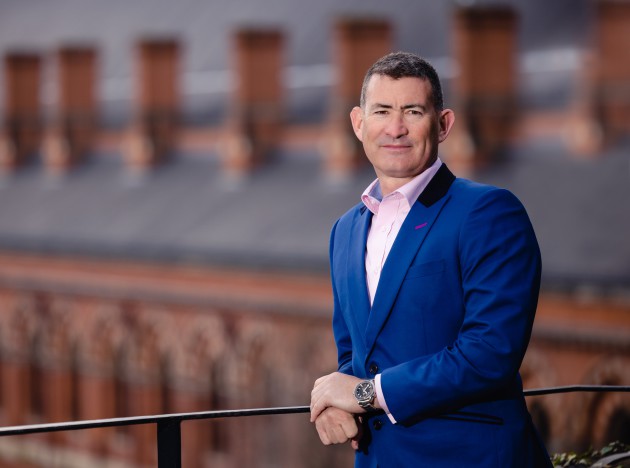
Nick Gillett: When celebrity spirits deliver substance over style
We’re seeing an increase in the number of celebrities entering the spirits industry. And who can blame them – our industry is vibrant, fun, and full of top-notch people who are creative and love what they do. George Clooney, Ryan Reynolds, Matthew McConaughey and Kendall Jenner are just a few of the household names who have gone and produced their own booze brand. And it’s not restricted to spirits, with big names like Kylie Minogue and even Graham Norton entering the wine industry.
Across the water in the United States, it’s an even bigger thing. US-based hospitality insights platform, Union, found that nearly 80% of venues were stocking celebrity-backed brands and consumers were paying up to 73% more for these spirits, compared to the leading competitor in their category.
So, with it clear that there’s demand for and money to be made in celebrity spirits - what does it take to make or break a VIP alcohol brand?
Endorsement vs creation
Across the spectrum of celebrity spirits, what I’ve learned is that there’s a huge spread on the degree of individual involvement. In some cases, a celebrity spirit can be an extension of their ‘merch’ range; another product to sell to fans and a separate income stream to line their pockets. Alongside these, are the licensing deals which are increasing in number, where the celebrity involvement amounts to drafting a contract for use of their name in return for a chunky cash payment. In my mind, you’re unlikely to find complexity, depth, or quality across any of these liquids.
But, more unusually, we now see products entering the market which are passion projects of household names. These are spirits where the celebrity in question has been involved from conception, has worked with one of the industry’s boffins of distilling, and as a result has created a liquid that rivals the best in its category. These rare examples are gold dust for distributors, marketers – essentially all of us who are in the business of getting liquids on lips.
Reputation, reputation, reputation
We all know that the spirits sector is highly regulated and the words ‘drink responsibly’ are (quite rightly) embedded into every bottle and every piece of marketing that we push out into the world. And with an increased regard for wellbeing, better health and the desire for moderation that comes with it – a ‘rock and roll’ lifestyle might not be the perfect pairing. In short - not every celebrity has the ‘responsible’ or even ‘likeable’ reputation to pull off a spirit launch.
But where there is a fit in terms of reputation, a celebrity product is a marketer's dream. Huge followings, engaged social media channels, the power to make the press, and even more reach through their high-profile networks – the marketing opportunities (and resultant chance to sell lots of bottles) are tempting for all.
A survey of US adults found that a celebrity endorsement would make 24% of adults more likely to buy an alcohol brand, whilst a YouGov study found that on a global level that percentage was closer to 16%. In both cases the uptake is compelling when it comes to selling bottles. But for me there have to be a few other essential things in place before we’ll take on a celebrity’s spirit.
The deciding factors
I harp on (sorry) about the wonder of independent spirits all the time. And that’s because I think independent brands are doing it better. They’re passion driven, striving for excellence and the best of them are making waves in terms of their corporate responsibility. But the biggest difference I see from the best independent producers is the authenticity and story behind the product.
Whether it’s Avallen creating the world’s only climate-positive spirit (a delicious Calvados, in case you’ve never sampled it), Stauning driving category innovation with its new world whiskies, or Bounty bringing the authentic Saint Lucian staple tipple to UK shores for the first time – each story is compelling and each liquid exceptional.
Celebrity product or not – every spirit worth its salt should have a clear reason for its existence, should be striving for perfection in terms of its liquid and the team behind it should be completely invested in their final product.
When deciding to take on a celebrity spirit we’ll look at other things like the founder’s audience, their demographics and their reputation, but the first three qualities are the key to success.
A question of category
A proportion of the most notable celebrity booze bottles of late are agave products, mainly tequilas. And some are saying that this is one of the reasons the category has enjoyed a bit of a boom in the last few years. But one of the questions I’m most commonly asked in relation to celebrity spirits is ‘which category works best for celebrities?’, and my answer is, ‘there is no singular category’.
If you have everything I’ve already mentioned, the story is compelling enough and the liquid is first-class, then trends in category will have minimal effect. Every category of spirits has its main players, the big brand names that you’ll find on every booze shelf from Dingwall to Devon, so it doesn’t matter what you create, you’re going to come up against the big boys.
The prerequisites for a quality spirit don’t change for celebrity-backed or endorsed varieties. In fact, among hardcore spirits aficionados I’d argue celebrity brands have more of a point to prove. But where there’s a delicious liquid and a charismatic and dedicated celebrity founder involved, you’ve definitely hit the jackpot. Pairing quality craft with profile can be a match made in heaven, and I say that with the knowledge of a relevant Mangrove announcement or two coming in the not-so-distant future. Look out.






